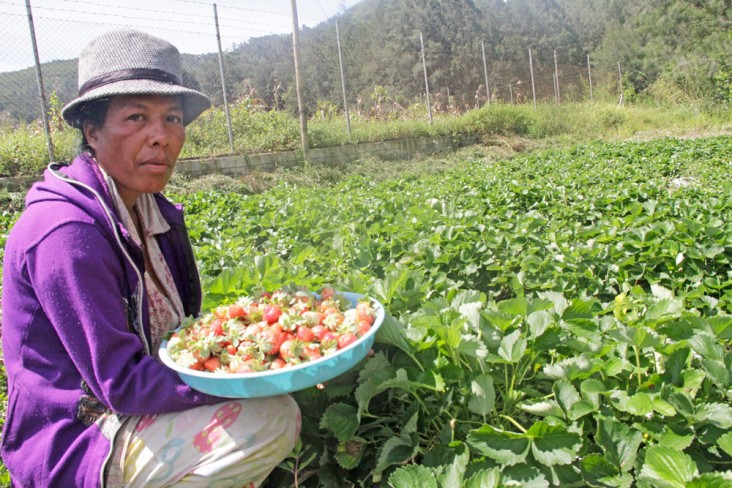Speeches Shim
More than 70 percent of Timorese depend on agriculture for their livelihoods; however, many lack access to high-quality farming equipment and markets. USAID helps build an inclusive, sustainable economy by promoting community-based tourism, boosting farmer productivity, improving access to high-quality equipment and linking farmers to new markets.

Thanks in part to USAID’s introduction of modern technology and farming techniques, farmers’ incomes rose by 700 percent over three years.
Agriculture is the primary livelihood for about 70 percent of the population in Timor-Leste, yet the majority of farmers lack access to the technologies and practices needed for sustainable and efficient crop production. Subsistence and commercial producers face significant constraints, including limited access to quality inputs, low yields and high post-harvest losses as well as limited market access. USAID’s development strategy recognizes inclusive economic growth in the agriculture sector as a key to strengthening institutional and human capacity in Timor-Leste.
- Spurred by these economic gains and USAID’s introduction of an input supplier trade credit program, farmers are rapidly transitioning from subsistence to commercial farming, which has increased input suppliers’ annual sales from $200,000 to $550,000 in three years.
- Achieved the target of 80 protected clean water sites, which now serve households from 110 neighborhoods, representing a third of Oecusse’s population. Access to water has allowed people to diversify and increase agricultural production, which increases food security.
- Facing a fragmented tourism sector, USAID’s investment promotes Timor-Leste’s vision of becoming a competitive international tourism destination while preserving the country’s unique environmental and cultural heritage. The project focuses on two main objectives to achieve that vision. The first is to ensure that institutions, policies and laws are in place to fully implement the national tourism policy launched in 2017. The second objective is to promote sustainable private sector tourism investments and participation by Timorese communities, local and international NGOs, associations, and others, and create replicable models of sustainability and best practice.


Comment
Make a general inquiry or suggest an improvement.